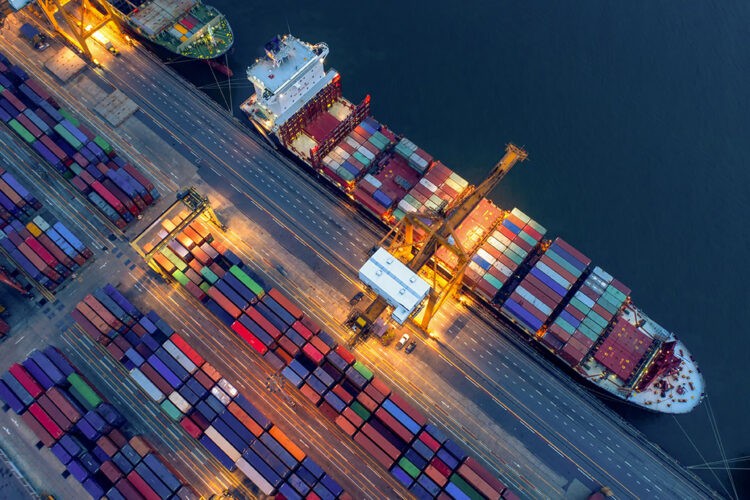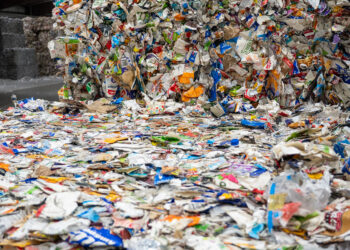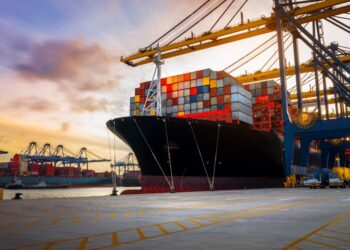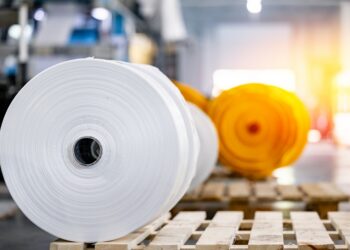U.S. President Donald Trump implemented 25% tariffs on Canada and Mexico, effective Feb. 4, then delayed them, creating a rapidly changing trade landscape that furthered uncertainty in the recycling and plastics industries.
Trump said the tariffs, which include an additional 10% on Chinese imports, are intended to address immigration and drug issues he blames on the three countries. However, oil and natural gas imports from Canada would have been subject to a lower 10% tariff, according to a White House fact sheet.
He also has threatened tariffs against the European Union, based on what he perceives as poor treatment of the U.S.
On Feb. 3, Mexico said it agreed to send troops to the U.S. border, which will delay tariffs on the country for a month.
Canada announced retaliatory 25% tariffs on $30 billion in U.S. goods including pulp, paper and plastic resins, effective Feb. 4. The country also intends to impose tariffs on an additional $125 billion in goods including vehicles, steel and aluminum products, produce, beef and pork, dairy and recreational boats, following a 21-day public comment period.
Later in the day on Feb. 3, Prime Minister Justin Trudeau announced that the Canadian tariffs would also be paused for 30 days after Canada agreed to implement a nearly $1 billion border plan.
That price tag includes sending new helicopters, technology and personnel to the border and appointing a “Fentanyl Czar.” Cartels will be classified as terrorists and a Canada-U.S. Joint Strike Force will be created to combat organized crime, fentanyl and money laundering.
What’s at stake
Between January and November 2024, Mexico provided 18% of the 1.285 million metric tons of bottle-grade and film-grade PET resin imported into the U.S., while Canadian volumes accounted for 7%, according to data from the U.S. International Trade Commission. In full-year 2022 and 2023, the two countries combined to account for almost 30% of U.S. PET resin imports.
The U.S. doesn’t have a tariff code for RPET, so any imported volumes would be combined with virgin PET totals.
Because of existing tariffs on Chinese PET, the country imports only nominal amounts into the U.S. – about 2,500 metric tons in 2023 and less than 100 metric tons between January and November 2024.
Inexpensive virgin HDPE as a result of vast global oversupply has suppressed demand for RHDPE in recent years, as massive new PE plants have started up in the U.S. and in China.
Canada has nearly 5 million metric tons per year of virgin PE capacity, according to Argus Media, and shipped 2.9 million metric tons to the U.S. between January and November 2024, or 86% of all PE imports, according to U.S. International Trade Commission data. Full-year data will be available Feb. 5.
As for recovered fiber, in 2024 Canada provided 94% of the 919,000 metric tons imported into the U.S., and Mexico sent most of the remainder, according to U.S. ITC data. Of the 11 million metric tons of recovered fiber exports, Mexico received 15%, Canada 7% and China 3%. About half of U.S. recovered fiber exports landed in the rest of Asia, and those volumes often wind up in China after being pulped.
Numerous companies and industry associations commented on the tariffs, both before and after they were formally announced, largely hoping for a swift resolution of the dispute and highlighting the industry’s significant role in a robust economy.
Industry highlights importance of trade partners
Many industry statements touched on the United States-Mexico-Canada Agreement, which was created during the first Trump administration to replace the North American Free Trade Agreement.
“While we understand the Trump Administration must focus on solutions to address major problems at the border, such as fentanyl trafficking, the imposition of tariffs on our North American trading partners will significantly disrupt U.S. manufacturing and recycling operations that depend on recycled material inputs,” Robin Wiener, president of the Recycled Materials Association, said in a written statement.
Wiener added: “The U.S. recycled materials industry is a net exporter and supports 500,000 jobs nationwide, with the exports of recyclables helping to reduce the U.S. trade deficit. U.S. recyclers benefit greatly from the North American market access that the USMCA provides, access that these tariffs will put at risk.”
The tariffs are separate from Trump’s directive to his incoming cabinet to review existing trade and tariff policies on imports including steel and aluminum, Chinese shredder wear parts and the USMCA, ReMA said in a separate statement. That review is due April 1.
Each year, more than $8 billion in recycled materials cross the U.S.-Canada border and nearly $3.3 billion of recycled products cross the U.S.-Mexico border, Wiener said. “These new tariffs, and any retaliatory measures they may provoke, will only reduce the competitiveness of our industry and the manufacturers that rely on recycled materials,” she added.
The American Forest and Paper Association said in a statement that it “supports free and fair trade practices, and we rely on Canada and Mexico as key trading partners.”
“In 2024 alone, total two-way trade for pulp and paper products with Canada was over $14 billion and total two-way trade with Mexico was over $5 billion,” said the statement from AF&PA president and CEO Heidi Brock. “These tariffs have the potential to seriously disrupt the U.S. forest products industry’s complex, cross-border supply chains that employ more than 900,000 people.”
Scott Defife, president of the Glass Packaging Institute, told Resource Recycling the “use of tariffs should be limited, surgical and targeted, when evidence is clear that unfair trade practices and pricing schemes undermine domestic industry. An example of such a situation we have supported is with unfilled glass containers from China.”
Defife added that the North American supply chain for glass containers, like many industries, is “deeply intertwined after decades of regional trade agreements. Broad based general tariffs between the USMCA trading partners and other allies can do more harm to the U.S. manufacturing industry and needlessly drive-up consumer prices. We are hopeful that the policy issues the administration seeks to change can be worked out in the next 30 days so that these reciprocal tariffs can be avoided.”
CEO Matt Seaholm of the Plastics Industry Association said the organization is concerned about the new tariffs and their impact on U.S. plastics manufacturing and jobs.
“While we understand President Trump’s rationale, a blanket tariff policy could have significant economic consequences, disrupting the movement of essential machines, products, and materials that keep American manufacturers running,” he said in a statement, adding that new tariffs on key trading partners threaten supply chains, increase costs and risk eroding the U.S. trade surplus for plastics.
“Canada and Mexico are our industry’s largest trading partners. The American chemical industry imports materials, many of which are unavailable in the United States, adding value and supporting other manufacturing supply chains domestically and abroad, through our exports,” said the American Chemistry Council in a statement. The ACC added that U.S. chemicals hold a net exporter position with Canada and Mexico.
The ACC continued: “We would ask that all parties negotiate a solution to the issues behind these Orders as soon as possible. In particular, the U.S. chemical industry continues to support the USMCA Agreement between the United States, Canada and Mexico.” The American Fuel & Petrochemical Manufacturers trade association and the National Association of Manufacturers made similar statements.
Several corporations with significant investment in recycling also addressed the potential tariff impacts in earnings calls just days before they were announced.
Eastman CEO Mark Costa said in a Jan. 31 earnings call that today’s global manufacturing economy is weaker than during the 2019 trade war with China and many countries are in a weaker position. “So it’s not clear to me how much more negative impact tariffs can have on top of the manufacturing recession we’re already in.”
He added that “our forecast does not include any significant impact from the trade actions.”
During a Dow earnings call Jan. 30, Chief Financial Officer Jeffrey Tate said the company was watching for any impact from ongoing geopolitical volatility, including potential tariffs.
Dow has PE production in Canada’s Alberta province and is building a “net-zero” ethane cracker to produce ethylene feedstock for its polymers. In the U.S. it has invested in mechanical recycling.
Dow is “relatively balanced with Canada,” CEO Jim Fitterling said during the call, though he acknowledged there was “a little bit more coming into the U.S. from a finished product standpoint, but we have product that moves both ways.” He added, “I don’t think it’s the administration’s view to do something that’s going to hurt the global economy. I think they want to try to create the situation where we continue to have growth and investment here.”
ExxonMobil CEO Darren Woods said Jan. 31, “At the end of the day, what we can control is how effective and efficient we are as operators, making sure that we’re producing the highest value products for the kit that we have and efficiently getting it to market.” ExxonMobil is investing in new chemical and mechanical recycling capacity in the U.S.
He added that tariffs would not change that stance, “and our view is we’re going to continue to be a very cost-competitive, low-cost-to-supply source, and therefore we’ll continue to outperform competition, and that’s basically how we’re looking at it as we kind of wade through the noise that’s out there in the media and the press with respect to all the speculation around policy.”





























